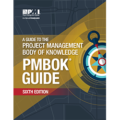
Tacit knowledge is that which is not codified and transferable through written or oral language, for example personal experience. It is the opposite of explicit knowledge which is learned and can be repeated. Tacit knowledge is held by human beings; It is more difficult to obtain than explicit knowledge but has more value.
Tacit knowledge is business advantage.
That’s because filling your brain with factual knowledge is easy, hence everyone does it. But it’s the experience that turns that knowledge into highly desirable products and services.
Virtually everyone can enhance their careers or their business groups by asking this simple question: How can I turn my/our explicit knowledge into tacit knowledge?
In project management, knowledge management is a key process in the Project Management Body of Knowledge (PMBOK Guide) and a key to project success. But even more so than project success, the project manager gains personally from the project’s tacit knowledge bank. Who can argue against the fact that project managers with connections that generate (or lead) future business are worth significantly more to the organization than those that create fabulous project management plans?
So how, then, do you utilize tacit knowledge? To answer that question, we first define what tacit knowledge is.
What is Tacit Knowledge?
Tacit knowledge consists of:
- Skills
Things like the ability to hammer a nail, produce a building design with confidence, or produce computer code are invaluable. Although the process itself is explicit knowledge, the experience of knowing the typical issues and being able to do it with speed and confidence is tacit knowledge. - Ideas
When a person can formulate ideas to improve a process or move an organization forward, the knowledge is significantly more valuable than simple facts. - Experience
Once someone has performed the same task many times, they obtain knowledge of the issues, obstacles and underlying premises that is not possible with basic knowledge taught in a course.
Tacit knowledge and explicit knowledge are opposite sides of the same coin.
Tacit vs. Explicit Knowledge
Tacit knowledge is that which cannot be taught, versus explicit knowledge is taught in a class.
Tacit knowledge is highly valuable to organizations, versus explicit knowledge which is easy to obtain and therefore cheap.
Tacit knowledge is learned slowly, versus explicit knowledge which is absorbed quickly.
How Do You Obtain Tacit Knowledge?
 To obtain tacit knowledge, you cannot send a person to a course. Although that is the prerequisite to obtaining the tacit knowledge, it is the personal experience and project quality that comes with it that must be learned over time. It’s the more difficult part, but that’s why it’s so valuable.
To obtain tacit knowledge, you cannot send a person to a course. Although that is the prerequisite to obtaining the tacit knowledge, it is the personal experience and project quality that comes with it that must be learned over time. It’s the more difficult part, but that’s why it’s so valuable.
To obtain tacit knowledge you must be continually training people and providing experience along with that training. It includes giving project team members the experience of hands on training that makes them confident in their work. Here are some pointers:
- Spread the core (important) work around. The experienced people often hoard the work with high failure consequences, when they should instead be checking the work of junior people. For example, a precast concrete plant should give everyone the opportunity to perform the concrete finishing, or a software development firm should give everyone the opportunity to code the user interface.
- Create an environment where new ideas are encouraged. Line employees frequently have ideas that improve processes and increase value but are afraid to share them because they will be shot down by more senior people. Providing a monetary reward can assist with this.
- Provide a formal learning program, for example a budget for team development or training courses. Of course, the training courses are explicit knowledge that all your competitors are probably already doing, but follow it up with hands on opportunities to put the new knowledge into practice.
Why Is Tacit Knowledge Important?
Because its more valuable.
It’s easy to send a person to a training course to obtain explicit knowledge, and lots of organizations do (like your competitors). It’s the development of that knowledge into personal experience that sets companies apart and creates competitive advantage. The resulting tacit knowledge is difficult to replicate by competitors. It increases product quality, production speed, maintenance costs, or any relevant and measureable metric for success. Hence, it is worth something.
Also, it usually comes without long term costs besides training and experience. An engineer with lots of experience is usually paid similar to the same class of engineer that has recently joined the organization and learned the explicit knowledge.
How to Transfer Tacit Knowledge
Projects, by definition, have a distinct start and end date, hence they need to plan for the transfer of the project’s tacit knowledge base back to the parent organization. This is sometimes not an easy task.
Tacit knowledge is not easily transferable. It resides within the people who have obtained it and cannot be simply written down or orally transferred. But here are some options to consider:
- Lessons learned repository
The Project Management Body of Knowledge (PMBOK Guide) specifies the use of a lessons learned register. This document attempts to pass on the personal experience of project team members to the organization, and hence future projects.  Working in teams
Working in teams
When people work together, especially junior and senior people, the tacit knowledge embedded within the work is transferred. This results in a retention rate of the tacit knowledge when the senior person leaves the organization but the work can still be performed satisfactorily.- Show your work
When people write down what they’re doing as explicit knowledge, the underlying tacit knowledge is passed on. - Promote historical understanding
Tacit knowledge is often based on the history of the organization. For example, if a company organized an event many times in the past but the people who organized the event have moved on, the experiences have most likely left a paper trail, procedures, correspondence, and participants who can provide direction as to historical methods. You are not at square one because a little bit of the tacit knowledge has remained within the company.
Examples of Tacit Knowledge
- The confidence to certify a high-risk design
- The ability to organize people
- Craftsmanship – The ability to build high quality tangible items
- The ability to speak a language
- The skill to create an innovative design or artwork
- The ability to play a musical instrument




